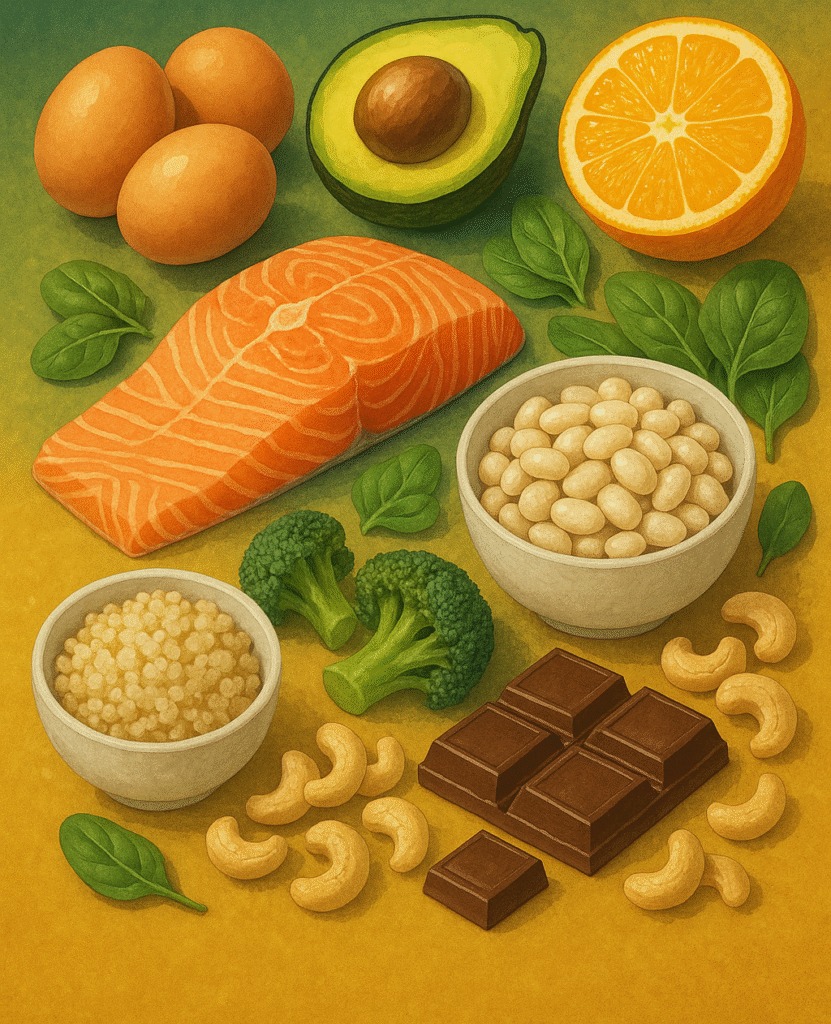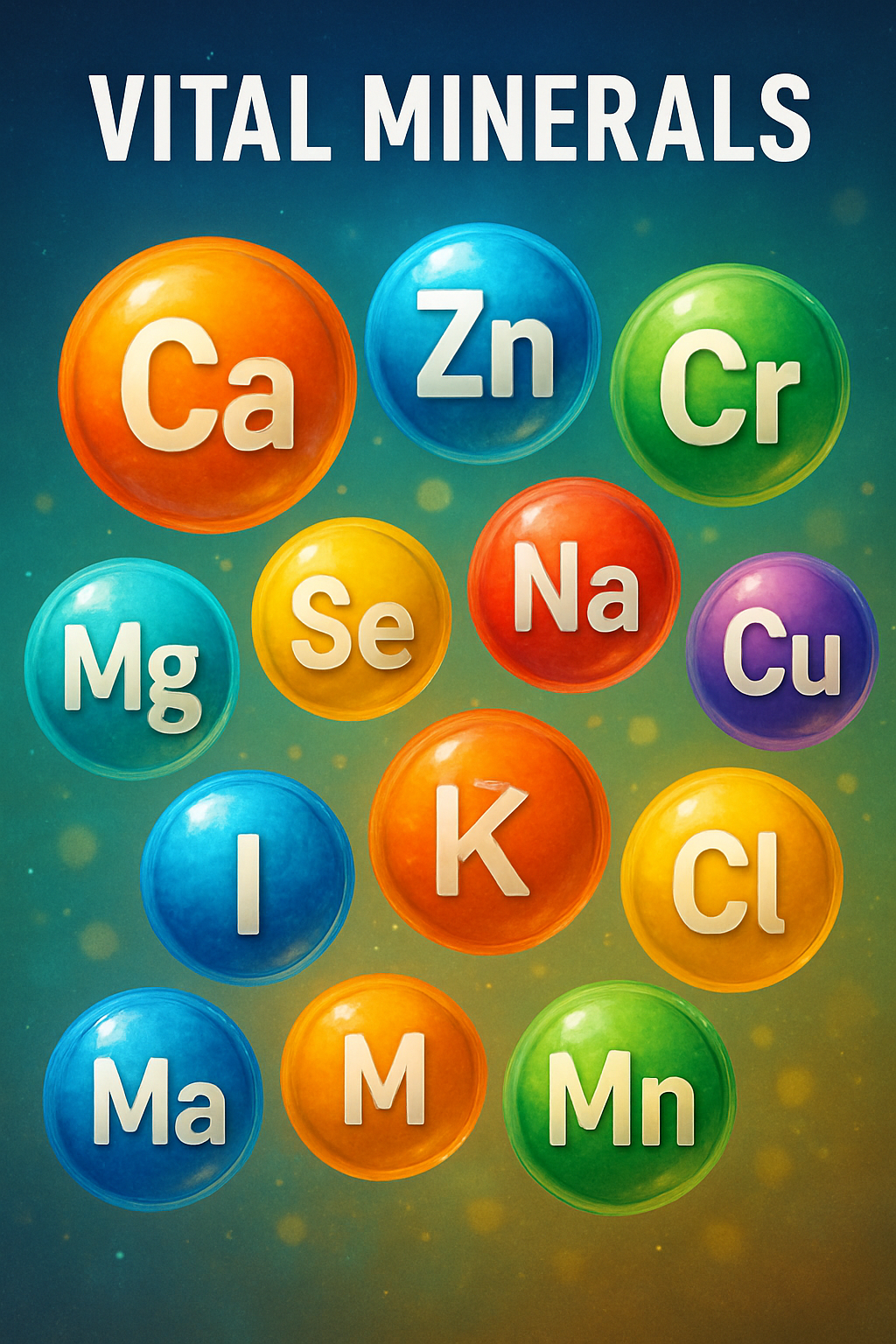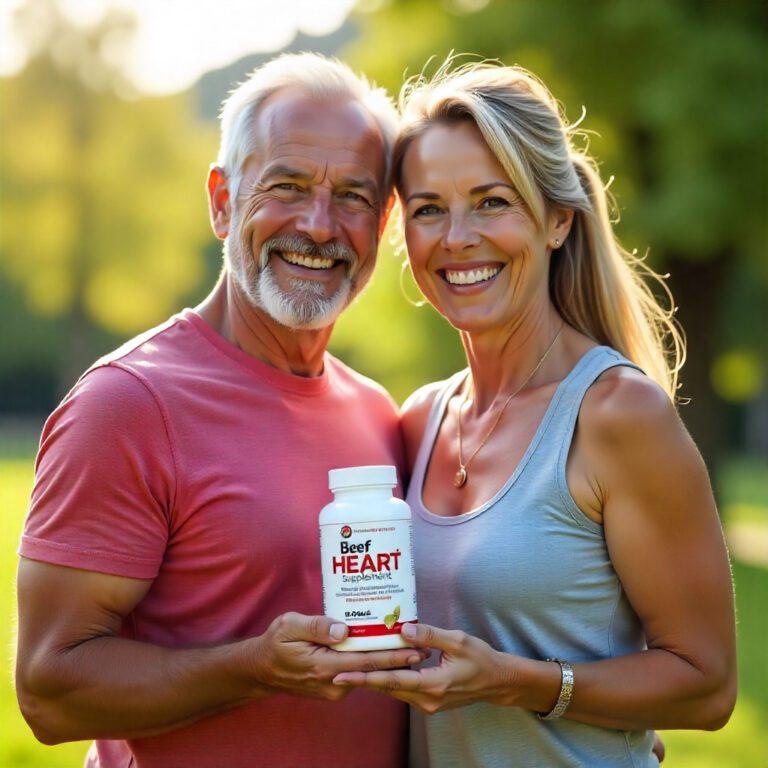Vital Minerals: The Essential Nutrients Your Body Can’t Live Without
Vital minerals are inorganic nutrients that your body needs in small amounts to function properly, but they play a massive role in health. From supporting bone strength to boosting immunity and energy, these micronutrients are non-negotiable for optimal well-being. Let’s dive deep into what minerals are, why they matter, and how to get enough of them.
Vital Minerals: What Exactly Are They?
Minerals are naturally occurring elements found in soil and water, absorbed by plants, and consumed by humans through food. Unlike vitamins (which are organic), minerals are inorganic but just as essential. They’re categorized into two groups:
- Macrominerals – Needed in larger amounts (e.g., calcium, magnesium, potassium).
- Trace Minerals – Needed in smaller amounts (e.g., iron, zinc, selenium).
Without these minerals, critical bodily functions like nerve signaling, muscle contraction, and enzyme reactions would fail.
Essential Minerals for the Body: The Top Must-Haves
Your body relies on several key minerals to thrive. Here’s a breakdown of the most important ones:
| Mineral | Key Role | Best Food Sources |
|---|---|---|
| Calcium | Dairy, leafy greens, and almonds | Supports nerve function, energy, and sleep |
| Magnesium | Spinach, nuts, and whole grains | Spinach, nuts, whole grains |
| Iron | Carries oxygen in blood, prevents anemia | Red meat, beans, spinach |
| Zinc | Regulates blood pressure and heart rhythm | Oysters, pumpkin seeds, lentils |
| Potassium | Bananas, sweet potatoes, and avocados | Spinach, nuts, and whole grains |
| Selenium | Antioxidant, thyroid support | Brazil nuts, fish, eggs |
A deficiency in any of these can lead to fatigue, weakened immunity, and chronic health issues.
Vital Minerals Collagen: The Connection You Need to Know
Collagen, the most abundant protein in your body, relies heavily on minerals like copper, zinc, and silica for production. These minerals help form collagen fibers, which keep your skin firm, joints flexible, and bones strong. Without them, collagen synthesis slows, leading to wrinkles, joint pain, and brittle nails.

Best Mineral-Rich Foods for Collagen Support:
- Copper: Shellfish, nuts, seeds
- Zinc: Beef, chickpeas, cashews
- Silica: Cucumbers, bell peppers, oats
Is Vitamin Short for Vital Minerals?
No! Both are important micronutrients. Vitamins are organic compounds made by plants or animals. Minerals are inorganic elements from the earth. Your body needs both, but they work separately. For example, Vitamin D helps absorb calcium (a mineral), showing how they team up for health.
What Is the Vital Role of Minerals?
Minerals are the unsung heroes behind countless bodily processes:
Energy Production (Iron and Magnesium help convert food into fuel)
Nerve & Muscle Function (Calcium & Potassium regulate contractions)
Immune Defense (Zinc, Selenium fight infections)
Bone & Teeth Health (Calcium and Phosphorus provide structure)
Hormone Balance (Iodine supports thyroid function)
Without minerals, even basic metabolic reactions would stall.
How to Ensure You’re Getting Enough Minerals
- Eat a Diverse Diet – Prioritize whole foods like leafy greens, nuts, seeds, and lean meats.
- Consider Supplements – If deficient (e.g., iron for anemia, magnesium for cramps).
- Check Your Water – Mineral-rich spring water contains calcium and magnesium.
- Avoid Processed Foods – They’re often stripped of natural minerals.
Signs You Might Be Mineral-Deficient:
- Fatigue, muscle cramps (low magnesium/potassium)
- Brittle nails/hair (low zinc/silica)
- Weak bones (low calcium/vitamin D)
- Frequent sickness (low zinc/selenium)
What are the 17 minerals your body needs daily?
The 17 Essential Minerals Your Body Needs Daily
Your body requires 17 vital minerals daily to function optimally. These minerals are divided into macrominerals (needed in larger amounts) and trace minerals (required in smaller quantities). Each plays a vital role in energy production, immunity, and bone health. Below is a breakdown of all 17 essential minerals and their key functions to keep you fit over 40.
Macrominerals (Required in Larger Amounts)
| Vital Mineral | Primary Function | Best Food Sources |
|---|---|---|
| Calcium | Bone strength, muscle function | Eggs, garlic, and cruciferous veggies |
| Magnesium | Nerve function, energy production | Spinach, nuts, and whole grains |
| Potassium | Heart rhythm, blood pressure | Table salt, seafood, and celery |
| Sodium | Fluid balance, nerve signaling | Salt, seaweed, and tomatoes |
| Phosphorus | Bone & teeth structure, energy | Meat, dairy, lentils |
| Chloride | Digestion, fluid balance | Eggs, garlic, and cruciferous veggies |
| Sulfur | Detoxification, skin health | Eggs, garlic, cruciferous veggies |
Trace Minerals (Required in Smaller Amounts)
| Mineral | Primary Function | Best Food Sources |
|---|---|---|
| Iron | Oxygen transport, energy | Red meat, spinach, beans |
| Zinc | Immunity, wound healing | Oysters, pumpkin seeds |
| Selenium | Antioxidant, thyroid support | Brazil nuts, fish, eggs |
| Copper | Iron metabolism, collagen | Shellfish, nuts, seeds |
| Iodine | Thyroid hormone production | Seaweed, iodized salt |
| Manganese | Bone health, metabolism | Whole grains, nuts, leafy greens |
| Fluoride | Dental health | Tea, fish, and fluoridated water |
| Chromium | Blood sugar regulation | Broccoli, whole grains |
| Molybdenum | Enzyme activation | Legumes, grains, nuts |
A balanced diet rich in whole foods ensures you get these essential minerals daily. Deficiencies can lead to fatigue, weakened immunity, and long-term health issues, so always opt for a nutrient-dense diet!
Final Thoughts About Vital Minerals
Minerals are the backbone of your health; ignoring them can lead to serious long-term consequences. By eating nutrient-dense foods and addressing deficiencies early, you’ll boost energy, immunity, and longevity.
Key Takeaway: Prioritize mineral-rich foods, listen to your body’s signals, and consult a healthcare provider if you suspect a deficiency. Your health depends on these tiny but mighty nutrients!
FAQs About Vital Minerals
What is the vital role of minerals?
Minerals are inorganic nutrients that your body needs in small amounts to function properly, but they play a massive role in health. From supporting bone strength to boosting immunity and energy, these micronutrients are non-negotiable for optimal well-being. Let’s dive deep into what minerals are, why they matter, and how to get enough of them.
Is vitamin short for vital minerals?
No! Both are important micronutrients. Vitamins are organic compounds made by plants or animals. Minerals are inorganic elements from the earth. Your body needs both, but they work separately. For example, Vitamin D helps absorb calcium (a mineral), showing how they team up for health.
What are the vital minerals for the body?
Minerals are naturally occurring elements found in soil and water, absorbed by plants, and consumed by humans through food. Unlike vitamins (which are organic), minerals are inorganic but just as essential. They’re categorized into two groups:
Macrominerals – Needed in larger amounts (e.g., calcium, magnesium, potassium).
Trace Minerals – Needed in smaller amounts (e.g., iron, zinc, selenium).
Without these minerals, critical bodily functions like nerve signaling, muscle contraction, and enzyme reactions would fail.
What are the 17 minerals your body needs daily?
The 17 Essential Minerals Your Body Needs Daily
Your body requires 17 vital minerals daily to function optimally. These minerals are divided into macrominerals (needed in larger amounts) and trace minerals (required in smaller quantities). Each plays a vital role in energy production, immunity, and bone health. Below is a breakdown of all 17 essential minerals and their key functions.
Macrominerals (Required in Larger Amounts)
Mineral
Primary Function
Best Food Sources
Calcium
Bone strength, muscle function
Dairy, leafy greens, and almonds
Magnesium
Nerve function, energy production
Spinach, nuts, and whole grains
Potassium
Heart rhythm, blood pressure
Bananas, sweet potatoes, and avocados
Sodium
Fluid balance, nerve signaling
Table salt, seafood, and celery
Phosphorus
Bone & teeth structure, energy
Meat, dairy, lentils
Chloride
Digestion, fluid balance
Salt, seaweed, and tomatoes
Sulfur
Detoxification, skin health
Eggs, garlic, and cruciferous veggies
Trace Minerals (Required in Smaller Amounts)
Mineral
Primary Function
Best Food Sources
Iron
Oxygen transport, energy
Red meat, spinach, beans
Zinc
Immunity, wound healing
Oysters, pumpkin seeds
Selenium
Antioxidant, thyroid support
Brazil nuts, fish, eggs
Copper
Iron metabolism, collagen
Shellfish, nuts, and seeds
Iodine
Thyroid hormone production
Seaweed, iodized salt
Manganese
Bone health, metabolism
Whole grains, nuts, leafy greens
Fluoride
Dental health
Tea, fish, and fluoridated water
Chromium
Blood sugar regulation
Broccoli, whole grains
Molybdenum
Enzyme activation
Legumes, grains, nuts
A balanced diet rich in whole foods ensures you get these essential minerals daily. Deficiencies can lead to fatigue, weakened immunity, and long-term health issues, so always opt for a nutrient-dense diet!







